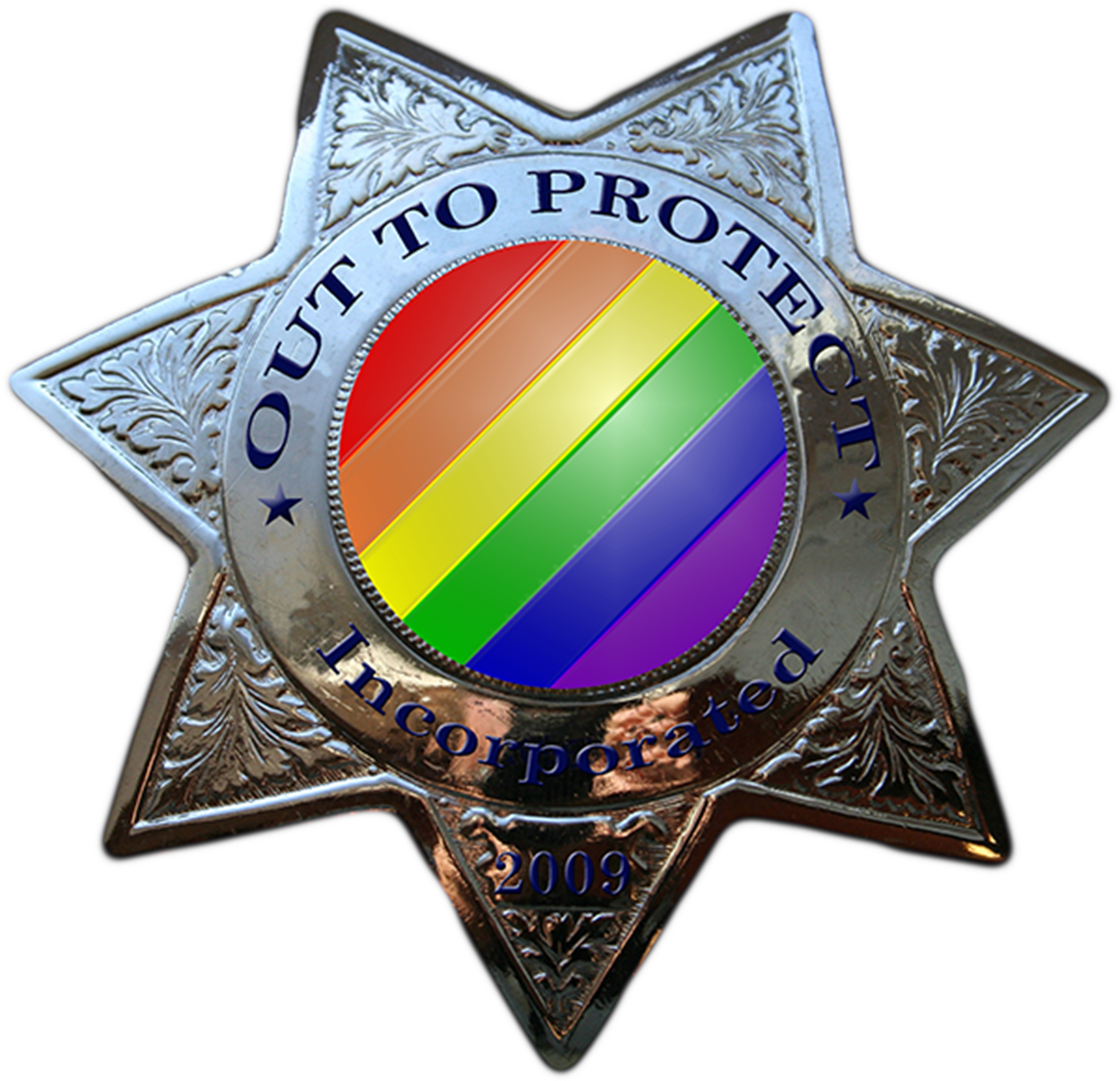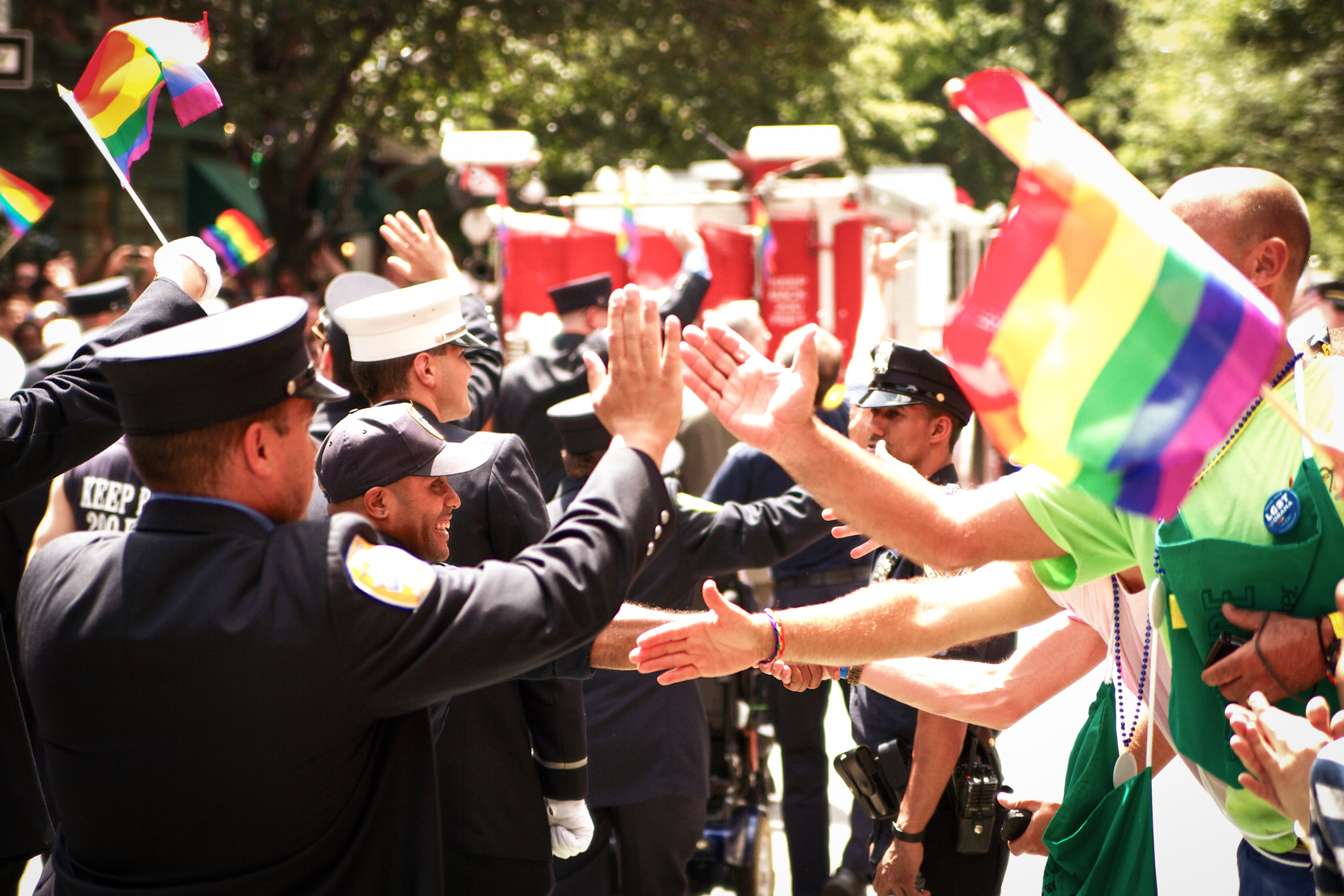Contact Us
To provide feedback on the Community Policing Dispatch, e-mail the editorial board at CPDispatch@usdoj.gov.
To obtain details on COPS Office programs, publications, and resources, contact the COPS Office Response Center at 800-421-6770 or AskCopsRC@usdoj.gov

U.S. Department of Justice
Office of Community Oriented Policing Services
Washington, DC 20530

Do you know how many people living in your jurisdiction are members of the LGBTQ community? Do you see them? Do you know them? People who identify as a sexual orientation or gender identity minority live and work in every town, big or small, in the United States. They may be working in your organization and not be “out” or visible to you and your colleagues. Why are these hidden identities not visible, you ask? Well, still today, in many parts of the United States, LGBTQ people live in fear of violence, rejection, and ridicule by, among other sources, law enforcement. The fear of law enforcement prevents trust, and today we can’t afford to ignore the importance of building trust with any part of our community.
June is Pride Month and an ideal time to examine ways to build trust between a law enforcement agency and its local LGBTQ community. Remember, the reason Pride Month exists at all is largely because of law enforcement. Modern day Pride parades and festivals commemorate the riots with police and LGBTQ people at New York’s Stonewall Inn in June of 1969. While this riot was not the first violent clash between LGBTQ people and police, it is the most notorious. All of the riots with police and the LGBTQ community that happened in the 1960’s were a culmination of decades of violence and growing mistrust with police. The good news is that law enforcement has made greats strides to mend the decades of ill will and to build trust. As a profession, we still have a very long way to go, but there are some very effective ways a law enforcement agency can build trust and they are not complicated or expensive.
It is easy to dismiss a community you cannot see or that is not vocal in favor of the “squeaky wheels.” But, responding only to the vocal minority is a reactive approach that won’t develop the level of trust law enforcement needs with the people it serves. We need to be proactive by reaching out to the silent and less visible members of our community, and there are some proven ways to do that effectively and without a great deal of cost. If you are committed to principles of community policing and the tenets of procedural justice, then it will be easy for you to realize how an LGBTQ Law Enforcement Liaison program can be a proactive way to build trust with the LGBTQ population. In fact, the model can be easily applied to any other sub-community in your jurisdiction.
 In 1962, the San Francisco Police Department became the first agency to appoint a representative of the department to the LGBTQ community. Sergeant Elliott Blackstone, a straight-identified cisgender man, became the department’s first representative to what was already a large and growing community. Since that time, departments large and small across the United States have appointed individual officers to act as liaisons between the law enforcement agency and the LGBTQ population. These positions provide a communication conduit between the chief executive, the department at large, and the LGBTQ community. They put a human face with a name on the law enforcement agency, thereby increasing access to law enforcement.
In 1962, the San Francisco Police Department became the first agency to appoint a representative of the department to the LGBTQ community. Sergeant Elliott Blackstone, a straight-identified cisgender man, became the department’s first representative to what was already a large and growing community. Since that time, departments large and small across the United States have appointed individual officers to act as liaisons between the law enforcement agency and the LGBTQ population. These positions provide a communication conduit between the chief executive, the department at large, and the LGBTQ community. They put a human face with a name on the law enforcement agency, thereby increasing access to law enforcement.
In 2021, we studied LGBTQ Liaison programs across the country and found that most programs function informally without any structure or written procedures. LGBTQ Liaison positions have several broad areas of responsibility in common, including:
- Providing LGBTQ awareness training for the law enforcement agency.
- Supporting law enforcement activity during an emergency involving the LGBTQ community including hate crimes investigations.
- Representing the law enforcement agency at community events and locations.
This may seem like a huge undertaking, but in most cases, the assignment is not considered a full-time one. In fact, most agencies can benefit from an LGBTQ Liaison as an ancillary assignment.
The appointed officer does not need to be a member of the LGBTQ community to be successful. What is important for success is that the program be structured to be sustainable. It is also important that the appointed officer receive training on how to deliver LGBTQ awareness training, support hate crimes investigations, and how to function as an LGBTQ Community Liaison.
If you are looking for a way to connect with your community during Pride month, consider creating an LGBTQ Liaison program for your agency. You will reap the rewards of improved trust for years to come and your community will thank you.
COPS Office Resource
About Out to Protect
 Out To Protect is a 501(c)(3) nonprofit organization formed in 2009 with the mission of creating a greater awareness of the gay, lesbian, bisexual, and transgender professionals working in law enforcement and to support those pursuing a law enforcement career.
Out To Protect is a 501(c)(3) nonprofit organization formed in 2009 with the mission of creating a greater awareness of the gay, lesbian, bisexual, and transgender professionals working in law enforcement and to support those pursuing a law enforcement career.
We offer online training courses including LGBTQ Awareness for Law Enforcement, LGBTQ Awareness Training for Trainers, LGBTQ Law Enforcement Community Liaison Academy, and Hate Crimes Investigations. Many of these courses are available free of charge to members of law enforcement.
Images Courtesy of Out To Protect.
Subscribe to Email Updates
To sign up for monthly updates or to access your subscriber preferences, please enter your email address in the Subscribe box.






